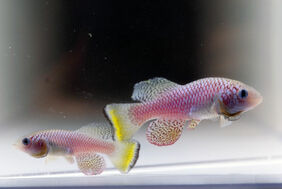Jena. Brain aging is a pivotal risk factor for many neurodegenerative diseases, yet its molecular and cellular mechanisms remain elusive. The amyloid-beta precursor protein (APP) is among the most studied proteins linked to brain pathology; however, its role in non-pathological brain aging remains poorly characterized. Here, Dario Valenzano and his colleagues investigate the natural impact of APP on normal brain aging using the short-lived turquoise killifish (Nothobranchius furzeri), which exhibits rapid and spontaneous age-related decline. Read more about their findings on









